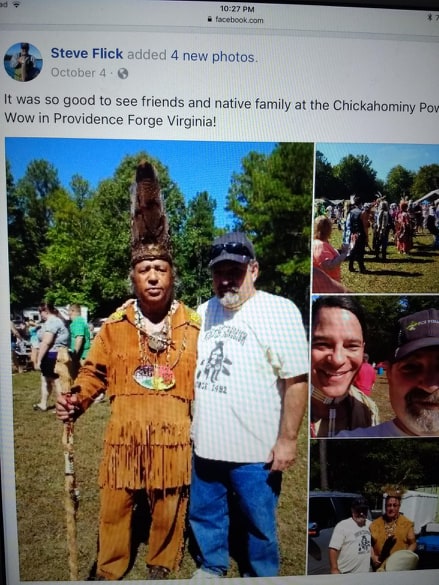I am presently assisting non-Native business to work with certain Tribes under the TERO program.
You may or may not have heard of it but Tribal Councils have passed tribal resolutions that authorized the establishment of the TERO Office within the Employment and Training Department of many Native Nations. For instance, on August 11, 1984, the Cherokee council approved a resolution and ordinance that enables the tribe to exercise their inherent sovereign powers by imposing Indian Preference on employers working on or near the jurisdictional boundaries of reservations and truthfully, I couldn’t be happier!
The primary purpose of the TERO program is to enforce tribally enacted Indian Preference law to insure that Indian/Alaska Native people gain their rightful share to employment, training, contracting, subcontracting, and business opportunities on and near reservations and native villages.
Why was it enacted you ask? This is the politically correct reasoning behind enacting it but we all know exactly why it was a necessary step, I say its due to a natural course, long in coming, its called Emancipation…finally an answer to:
- To address the deplorable rate of poverty, unemployment and underemployment that exists among native people living on reservations.
- To eliminate discriminatory and other historical barriers tribal members face while seeking employment and business opportunities on or near reservations.
- To ensure that tribal members receive their rightful entitlements as intended and required under the Tribal and federal Indian preference employment law.
The American Indian community has EVERY legal right to defend itself against the manufactured Natives, the “My great grandmother was an Indian princess”, or, the one I dislike and run across the most and I just nearly want to get loud and boisterous about is … “I have my MBE, and/or DBE certification and I was told that that makes me American Indian”. I have actually been sued, yes, sued behind my right to state the truth, of course in the end, I won but the complaintents asked for a yet to be determined amount of money in their lawsuit that was funded by their insurance company for my exposing the fact that they were NOT American Indian and they were losing money behind my making that very statement, it dragged on for nearly five years to the day before my Pyrrhic victory and trust me when I say the tolls suffered were tantamount to defeat and despite proving they were not Indian by the standards they were using, the city still gave them recognition to continue stealing from the poor with absolute impunity. etc. etc. etc.

There are a number of people that claim American Indian status, for example:




(Myung J. Chun / Los Angeles Times)

A Tribe’s authority to enact and enforce an Indian/Native employment preference law is grounded in its inherent sovereign status. This legal doctrine is the most basic principle of Indian law and is supported by a host of Supreme Court decisions. Inherent sovereign powers derive from the principle that certain powers do not necessarily come from delegated powers granted by express acts of Congress, but are inherent powers of a limited sovereign that have never been taken away. Tribes have a basic relationship with the federal government as sovereign powers. This is recognized in both treaties and federal statues. The sovereignty of tribes has been limited from time to time by treaties and federal legislation; however, what has not been expressly limited remains within tribal sovereignty.
What does all that really mean? well the long and the short of it is, you cant be the Kansas City version of Native America, you cant have 1/1064 blood quantum or try and get certified as the grandson or great grandson of a your Cherokee princess, oh no, you are going to have to prove who you are to claim status.
The core characteristics of the program provide additional and valuable insights into why the law and enforcement program are needed and applied. The following are three vital characteristics of TERO.
1. TERO is a true act of self-determination. The decision to enact a Tribal employment rights ordinance is based on each individual tribe’s needs and priorities.
2. TERO programs are action orientated. TERO offices are a no-nonsense, hands-on, result-orientated and process driven compliance programs.
3. TEROs are systematically structured programs. Key elements of the structure include:
- LEGAL FRAMEWORK: TERO utilizes a sound and comprehensive framework that encompasses the use of Tribal, Federal, contract and, where applicable, State employment law.
- ADMINISTRATIVE STRUCTURE: TERO programs have a well developed administrative structure which utilizes a thorough enforcement process.
- SYNERGISTIC PARTNERING: TERO programs apply synergistic partnering principles in relationships with employers in an effort to develop relationships that benefit both parties.
